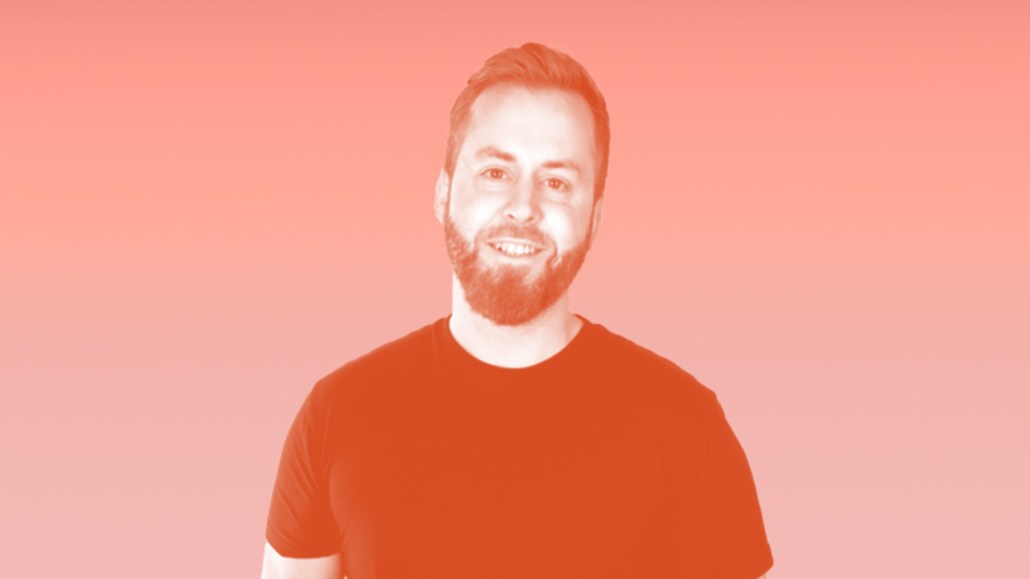Secure your place at the Digiday Media Buying Summit in Nashville, March 2-4
Journey Further’s Will Anderson starts growth consultancy to work alongside agencies

As a Digiday+ member, you were able to access this article early through the Digiday+ Story Preview email. See other exclusives or manage your account.This article was provided as an exclusive preview for Digiday+ members, who were able to access it early. Check out the other features included with Digiday+ to help you stay ahead
It can be tough growing a company in a competitive landscape — especially if you don’t know what to prioritize to get there.
Earlier this month, Will Anderson, former vp of growth at performance marketing agency Journey Further, founded and launched performance marketing consultancy Growth Society to change the way brands strategize for growth. Led by a team of five advisors (including himself and a former marketing director at Gymshark), the consultancy aims to differentiate itself from the agency approach — by focusing on digital strategies and testing new channels through a flexible team of around 30 freelancers combined with core specialists (rather than being fully staffed in-house).
After starting two e-commerce businesses and leading recruiting and business development at Journey Further, Anderson said he can relate to brands trying to grow and sustain themselves in a crowded marketplace. He contends that by streamlining processes like the pitching experience, or recruiting the right people with flexible contracts, brands can focus resources where it matters most to grow – whether that is in hiring personnel, client services or revenue generation.
Anderson explains why he spun out this consultancy, his philosophy on growth and how he plans to collaborate with other agencies.
This interview has been edited and condensed for clarity.
Why did you decide to go from the agency world to start a consultancy?
My career started off helping brands build in-house teams, so I was working specifically in recruitment. I then joined the agency world, where I’ve spent the last 10 years helping brands connect to agency teams. The thought process and the inspiration behind Growth Society was a reflection of the fact that some brands might be best working with independent specialists, freelancers — and some brands might be best working with agencies. Providing a flexible approach to accessing that talent is really what spurred [this].
What does having a flexible team and operating model mean?
We’ve built an advisory team, and … a lot of them have worked brand side. Then we’ve also got advisors, who are channel specialists. Their role [is to] help us deliver a really strong proposition to brands, to help them connect to the right partners – and then stay involved, to actually make sure that everything is joined up across channels and delivering growth. … When you work with an agency, to a certain amount, support sometimes can be quite siloed.
How do you define growth?
Whilst working many years on the agency side, I’ve also been driving my own e-commerce brands. I’ve been through that journey of having to scale my own brand, so I can understand what it’s like to be a founder. Growth for many people means obviously more revenue, scaling a business, hiring, creating more opportunities — but it doesn’t necessarily mean that. So if their objective is to drive more profit, you know that they might want to drive growth slowly — but sustainably. So it can come in all different shapes and sizes.
How do you differentiate from an agency offering consultancy services, or are you working alongside them?
Alongside. Two of the biggest blockers for growth come down to a lack of internal resources and inability to focus, so our job is to go in [and] assess the internal team capabilities, understand external growth opportunities, then start to connect the right specialists. Those specialists could be independent freelancers, or it could be agencies still working very collaboratively with both freelancers and [other] agencies. But our role is about recommending the right people based on the challenges and opportunities that exist.
Do you see this trend of adding consultancy offerings continuing?
Finding and retaining specialists is really hard, and that gets harder if you’re in certain locations where it’s hard to access talent. If we understand that brands would rather run things in-house, then you can start to see how you can add more value as an agency. You could stay involved for the longer term to offer more consultative services, but actually being more embedded within the brand. I think if agencies can do that, it makes them stickier. It provides more value. They get to know the brand [and] the customer on a much deeper level.
More in Media Buying

Future of TV Briefing: CTV identity matches are usually wrong
This week’s Future of TV Briefing looks at a Truthset study showing the error rate for matches between IP and deterministic IDs like email addresses can exceed 84%.

Canadian indie Salt XC expands its U.S. presence with purchase of Craft & Commerce
Less than a year after buying Nectar First, an AI-driven specialist, Salt XC has expanded its full-service media offerings with the purchase of Craft and Commerce.

Ad Tech Briefing: Publishers are turning to AI-powered mathmen, but can it trump political machinations?
New ad verification and measurement techniques will have to turnover the ‘i just don’t want to get fired’ mindset.








